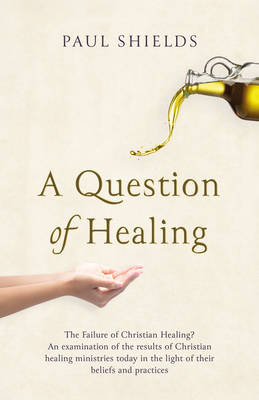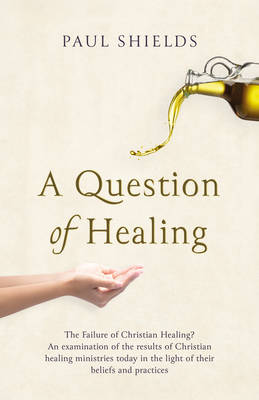
- Retrait gratuit dans votre magasin Club
- 7.000.000 titres dans notre catalogue
- Payer en toute sécurité
- Toujours un magasin près de chez vous
- Retrait gratuit dans votre magasin Club
- 7.000.0000 titres dans notre catalogue
- Payer en toute sécurité
- Toujours un magasin près de chez vous
23,95 €
+ 47 points
Description
The Bible appears to teach that suffering is inevitable; but does suffering originate with, or glorify God? Should enduring chronic sickness be considered an essential part of such suffering? And while God may use it as a punishment to unbelievers and the willfully disobedient, does He send it upon Christians, or should we consider it as being primarily from a diabolical source? Is there a tension between receiving divine healing by faith and relying on medical and surgical means? Is there a reason to expect that healing should occur in a miraculous and instantaneous fashion through a spoken word or a touch, in a similar manner to the healing accounts recorded in the New Testament? A Question of Healing attempts an answer to these fundamental questions about suffering and healing before examining how this theology in turn dictates the practices of those churches and organisations that are engaged in the Christian healing ministry and how the healing ministry operates within local churches, dependent upon those church's beliefs. Paul Shields then goes on to identify some hindrances to healing by addressing further questions such as, What are the issues that limit the success of our healing ministries? How does the attitude of a sick individual hinder or prevent a healing taking place? Is it usually God's will to bring healing or not? A Question of Healing of necessity takes a look at the pastoral problem associated with an individual not being healed, despite the attempts, the faith and often the pronouncements, of the faithful, before finally asking the question: Has the Church uniquely offended the person of the Holy Spirit such that certain of the gifts that He bestows have been effectively withheld? If so, can this condition be restored through renunciation and repentance? The book includes a number of personal testimonies of healing that illustrate the theological arguments being made and also seeks to answers questions such as: Was Jesus ever sick? Did Jesus pray for the sick or simply deal with the disease? Does God deal with injuries differently than sicknesses and diseases?
Spécifications
Parties prenantes
- Auteur(s) :
- Editeur:
Contenu
- Nombre de pages :
- 192
- Langue:
- Anglais
Caractéristiques
- EAN:
- 9781915046208
- Date de parution :
- 04-11-22
- Format:
- Livre broché
- Format numérique:
- Trade paperback (VS)
- Dimensions :
- 138 mm x 214 mm
- Poids :
- 235 g

Les avis
Nous publions uniquement les avis qui respectent les conditions requises. Consultez nos conditions pour les avis.






